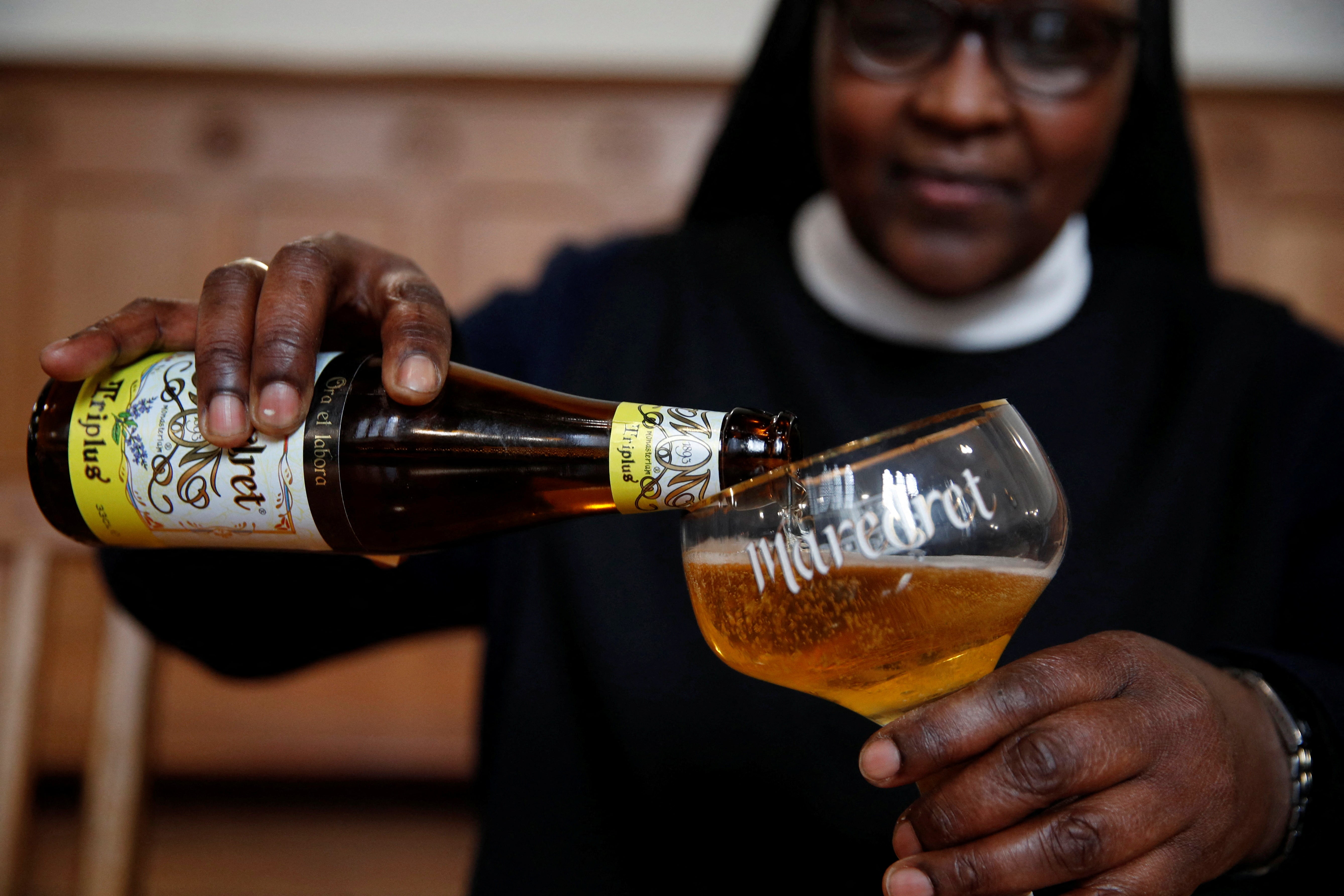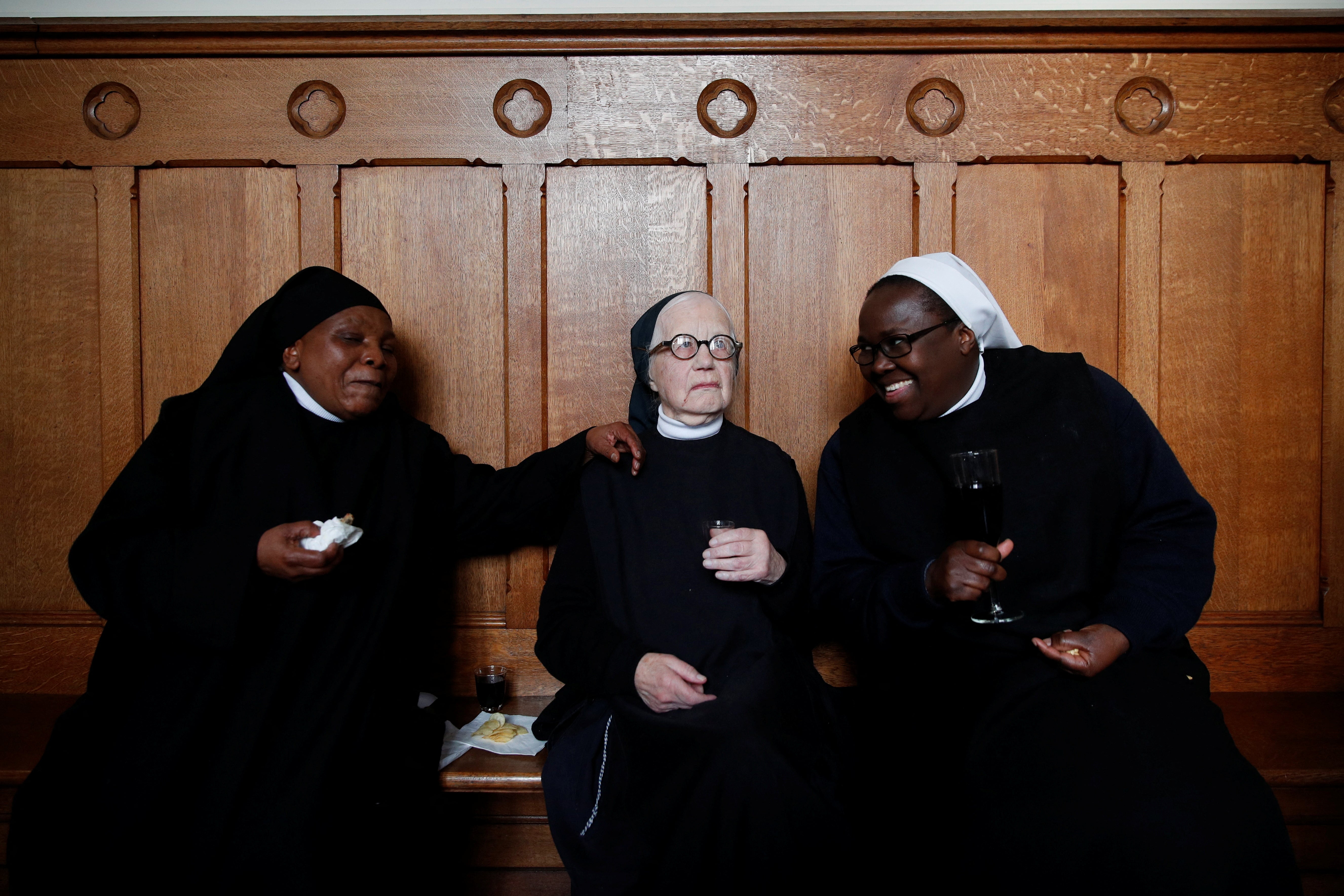Sisters are brewing it for themselves: Belgian nuns join monks in beer making
‘All the sisters like the beer, we are in Belgium after all’, says Sister Gertrude

When the nuns of Maredret Abbey in Belgium were struggling to scrape together the funds for badly needed renovation works, they turned to an occupation that for hundreds of years had been the preserve of monks: beer brewing.
The 20-strong Benedictine community, founded in 1893, decided about five years ago it was time to team up with a brewer with the aim of to producing beer infused with some of their history and values while helping repair their convent’s leaking roofs and cracked walls.
After nearly three years of collaboration with brewer and importer John Martin, Maredret Altus, a 6.8 per cent amber beer using cloves and juniper berries, and Maredret Triplus, an 8 per cent blond incorporating coriander and sage, went on sale in the summer.
“It’s good for one’s health. It aids digestion. All the sisters like the beer, we are in Belgium after all,” says Sister Gertrude, adding the nuns allowed themselves one bottle each on Sundays.
The beers are based on spelt, a grain mentioned in texts by Saint Hildegard, a German Benedictine abbess from the 11th century who has inspired the Belgian order, along with plants commonly grown in the nuns’ garden.
Edward Martin, head distiller and great-grandson of the brewer’s founder, says production is currently 300,000 bottles per year, which would rise to around 3 million within a couple of years. Outside Belgium, it is already being sold in Italy and Spain.
Abbey beers, which involve a brewer paying royalties in exchange for using the abbey name, are common in Belgium, but until now they have only been with abbeys housing monks.
Belgium is famous for its Trappist breweries, where beers are made under the supervision of monks who live in near silence under the rule of Saint Benedict.
These ventures cannot be run as profit-making enterprises, with funds going to fund the monks’ living expenses and grounds and to help charitable causes.

Maredret Abbey is just a kilometre from male counterpart Maredsous Abbey, whose beer, made by Duvel, is widely available.
Sister Gertrude stresses they do not see each other as rivals. “They were aware, informed and they gave us the green light. It’s not a competition, more a complementarity,” she says.
Reuters



Join our commenting forum
Join thought-provoking conversations, follow other Independent readers and see their replies
Comments